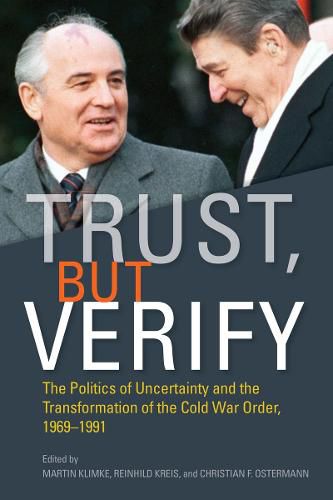Readings Newsletter
Become a Readings Member to make your shopping experience even easier.
Sign in or sign up for free!
You’re not far away from qualifying for FREE standard shipping within Australia
You’ve qualified for FREE standard shipping within Australia
The cart is loading…






Trust, but Verify uses trust-with its emotional and predictive aspects-to explore international relations in the second half of the Cold War, beginning with the late 1960s. The detente of the 1970s led to the development of some limited trust between the United States and the Soviet Union, which lessened international tensions and enabled advances in areas such as arms control. However, it also created uncertainty in other areas, especially on the part of smaller states that depended on their alliance leaders for protection. The contributors to this volume look at how the emotional side of the conflict affected the dynamics of various Cold War relations: between the superpowers, within the two ideological blocs, and inside individual countries on the margins of the East-West confrontation.
$9.00 standard shipping within Australia
FREE standard shipping within Australia for orders over $100.00
Express & International shipping calculated at checkout
Trust, but Verify uses trust-with its emotional and predictive aspects-to explore international relations in the second half of the Cold War, beginning with the late 1960s. The detente of the 1970s led to the development of some limited trust between the United States and the Soviet Union, which lessened international tensions and enabled advances in areas such as arms control. However, it also created uncertainty in other areas, especially on the part of smaller states that depended on their alliance leaders for protection. The contributors to this volume look at how the emotional side of the conflict affected the dynamics of various Cold War relations: between the superpowers, within the two ideological blocs, and inside individual countries on the margins of the East-West confrontation.